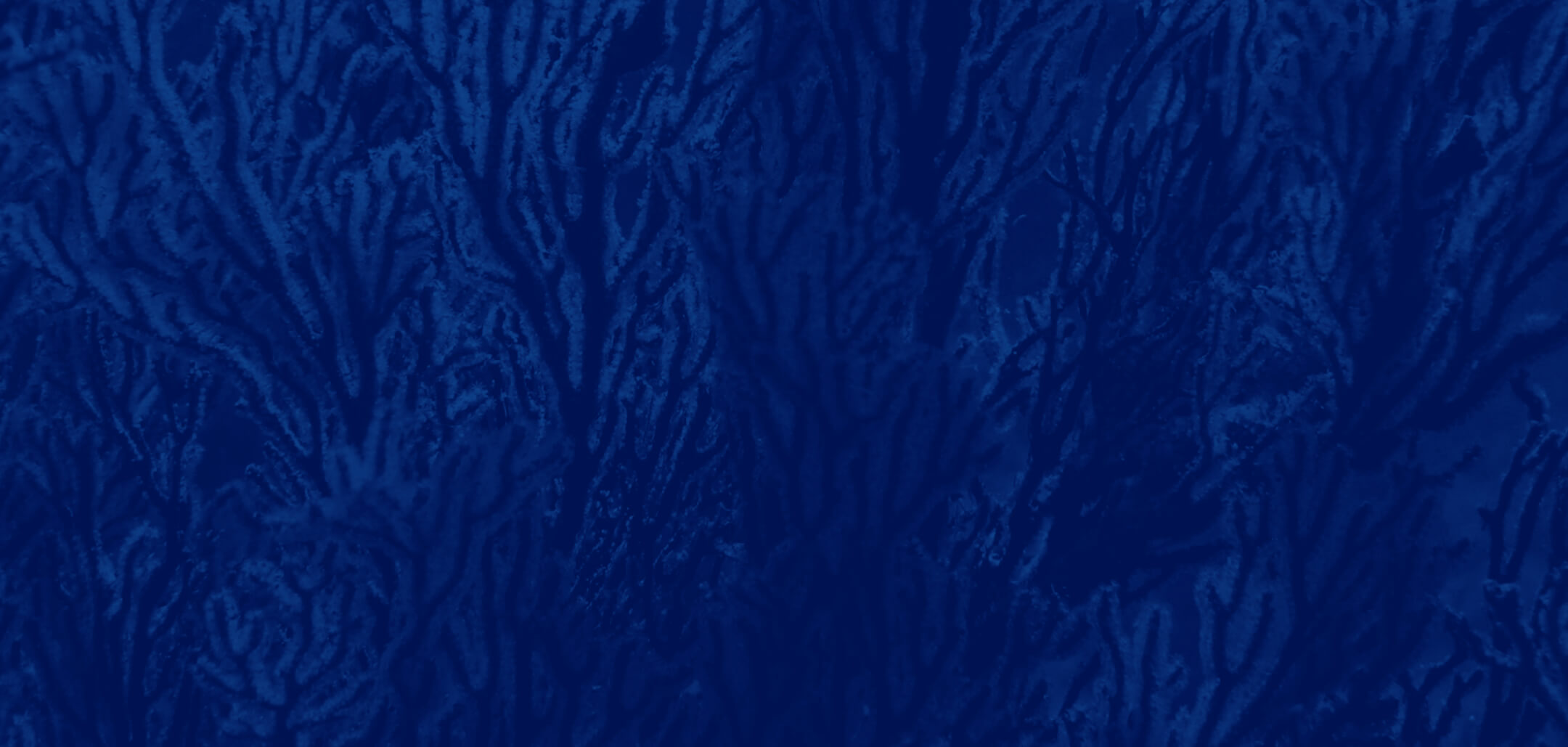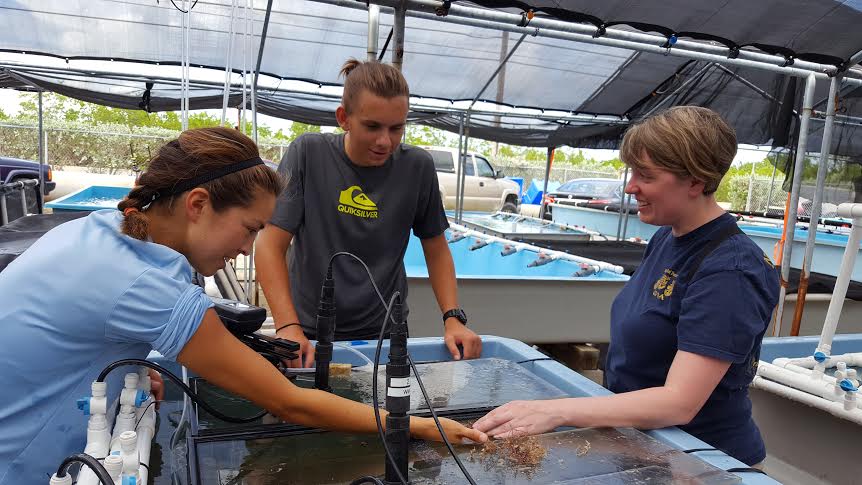Mote Marine Laboratory scientists partner each year with the Combat Wounded Veteran Challenge for coral restoration efforts in the Florida Keys. Now, one veteran from that group is preparing to immerse herself in Mote’s mission with a career-enhancing internship.
Veteran Chief Petty Officer Holly Katke, who retired from her role as Hospital Corpsman due to a serious combat injury, spent a week in July getting acquainted with Mote’s coral scientists and assisting at their lab on Summerland Key. Katke recently earned her bachelor’s degree in Health Sciences, focusing on environmental health, from Trident University in Long Beach, California. Now she’s gearing up to return to Summerland Key and work with Mote scientists who study the grand challenges facing Earth’s coral reefs.
Katke has overcome grand challenges of her own. During a 2010 mission with the Navy SEALS in Iraq, Katke was providing critical medical care to others when she took a bullet to the head. This injury has changed her life but not diminished her passion, which began in the medical field and now focuses on the health of the environment and those who depend on it.
After 14 years of military service, which earned her the Navy and Marine Corps Commendation Medal, Navy and Marine Corps Achievement Medal and the distinguished Purple Heart medal, Katke says she is excited to undertake her next mission — toward a career that will benefit the planet.
Q & A with Holly Katke
How did you get introduced to Mote?
Last year I visited Mote’s lab on Summerland Key with the Combat Wounded Veteran Challenge. I spoke with Dr. David Vaughan (Mote Senior Scientist) and Dr. Michael Crosby (Mote President & CEO) and told them I’m interested in environmental health. They invited me to come back.
This year I came down for a week in July, when I got introduced and helped with some chemistry and biology work. I graduated from Trident with my bachelor’s on July 30 and I am planning to go back to Mote as an intern. We’re figuring that out now. I’ve been planning to earn my master’s degree working in the direction of global health, but I’m also thinking of heading a different direction to do more work with Mote.
What research topics interest you?
Water quality really interests me. At Mote, Ashley Dungan (Staff Chemist in the Ocean Acidification Program) said they deal with water quality a lot and she showed me how to do tests. The water may look fine, but you can’t know unless you really test it.
With corals, there’s not a lot of room to play around with water conditions. For instance, it has to be a specific temperature. A lot of corals get bleached (from high ocean temperatures) and sometimes people just don’t realize that.
How does your experience as a combat wounded veteran relate to your life and work today?
I’m a veteran Chief Petty Officer and was an independent duty corpsman in the medical field. It’s like being a physician’s assistant. To do this in the military, you go to school for a year and are required to keep your GPA at 93 or above. Many people drop out in the first three months, but I was fortunate enough to keep my GPA at 95. When I was active duty, I could do things like prescribing medication and taking care of medical records.
When I was on a mission in Iraq, I was shot in the head by a sniper and the bullet went in, but not through. I was immediately rushed to surgery and was transferred to Bethesda, Maryland, and I was in a coma for awhile. It was a long, slow process of recovery.
I have paralysis on my right side. I am also legally blind and will have lifelong problems with reading and writing. So I use Dragon and Read & Write (technologies for voice dictation and for scanning text to read it aloud).
Even though I can’t do all the same things as others — for instance, I can’t scuba dive with my injuries — I make up for it in many ways.
What will you do next?
I will be working toward my master’s degree at Trident, continuing my interests related to water quality. Currently, I live in Washington, and the water in some areas is not great quality and has to be tested. I’m also interested in questions that have to do with saltwater, maybe in Florida, in Key West.
What do you want others to learn from you?
I want to tell people not to give up. When people have an injury or something like that, it’s easy for them to say “I’m done.” Then one year can turn into two or three. When I was hurt, people told me that I wouldn’t be able to do a lot of things like I used to. But the brain connects in different ways, and I have to work around it. I want to tell people that even if I’m doing just one class at a time toward my degrees, it can still be accomplished, and it’s getting done. I love working with veterans and hearing about their injuries and everything else because I have my own story. We all share our stories and sometimes laugh. If you don’t do that, what else will you do?
—
After her initial week with Mote in July, Katke’s dedication has already impressed Mote researchers:
“Something really inspiring about Holly is how determined she is to get the most out of any experience,” said Mote Staff Chemist Ashley Dungan. “My team and I taught her like she was any student, which can be challenging to begin with, let alone when you have significant paralysis. She conquered it all and found ways to adapt techniques to fit her limitations. It wasn’t until the last day of her recent visit that she shared that she was legally blind. With her positive attitude, work ethic and performance, I never would have known.”


